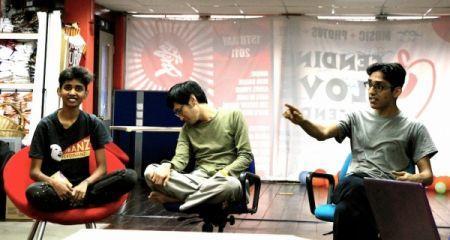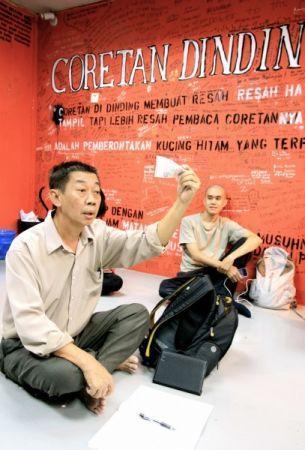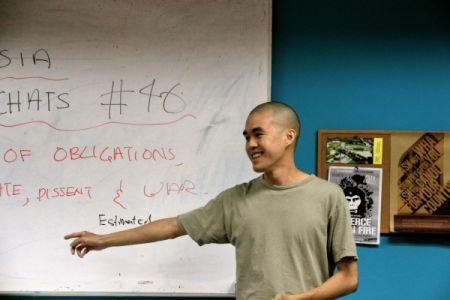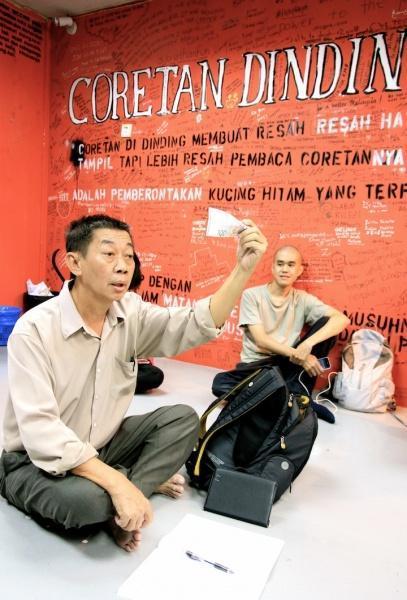Couldn’t make it to Undichats #46 Philosophy of Obligations, State, Law, War and Dissent? Don’t worry, here’s quick recap of the top ten tweets/moments:
1. Lingswaran Singh (@lingwaransingh): “The state is just a function for making things easier. We owe a duty to society, to one another.”

2. Khairil Zhafri posed Lingswaran a question: “Can’t the State be considered as an agent of the people, of society?”
To which Lings replied: “This is what is used to legitimise the argument that we owe duty to state. [The] State does not represent all of us equally.”

3. PY Wong of Tindak Malaysia fame, as an audience member, pointed out: “We are working for money which costs practically nothing to print. Isn’t that slavery?”
4. Comment from the floor on a democracy: “Danger of utilitarianism is that there may be tyranny by majority. We need to protect minority as well.”

5. Jerng quoted Hobbes’ Leviathan:
“In such condition, there is no place for industry; because the fruit thereof is uncertain: and consequently no culture of the earth; no navigation, nor use of the commodities that may be imported by sea; no commodious building; no instruments of moving, and removing, such things as require much force; no knowledge of the face of the earth; no account of time; no arts; no letters; no society; and which is worst of all, continual fear, and danger of violent death; and the life of man, solitary, poor, nasty, brutish, and short.”
— Thomas Hobbes, Leviathan.
6. Kia Meng (@Kia_Meng) contexualises Hobbes by saying: “When Hobbes wrote, it was extremely violent time, lived in exile. We often forget the context of why philosophers write. It was only rationale to give up some individual liberty for collective survival.”
7. Kia Meng challenged the idea that Merdeka was as pretty and neat as textbooks paint it to be : “Our Malaysian Constitution is invoked as a pure document, suppressing the trauma of state violence and war pre-Merdeka” and how our police force, which was designed after British rule, was designed as more of a military force to quell rebellions rather than to solve crimes.
8. Thilaga spoke about pacifism, violence and dissent by asking:“Why is dissent being confined in a stadium? … Instead, shouldn’t dissent be a lifestyle by boycotting corporations and going vegetarian?”
9. Thilaga also challenged the idea of pacifism and violence by asking the “need to relook at [sic] ‘violence'” — it’s not just physical violence, emotional violence, spiritual violence, violence to the self ” and how the idea of prisons are violent by keeping loved ones apart.
She also opined that we humans think in binary but in truth, a non-violent act can be violent and and vice-versa. She also contextualised the whole thing by saying, “No one philosophy/ideology that will fit everyone in this post-modernist world. Everyone is a post-modernist, we just don’t know it. ”
10. Thilaga: “Revolution is not a bundle of accomplishments, but a process. How do we dismantle racism, classism, sexism is more important.”
Be sure to follow @undimsia on Twitter and on Facebook to follow our events!

